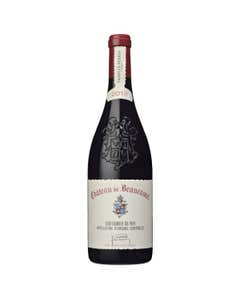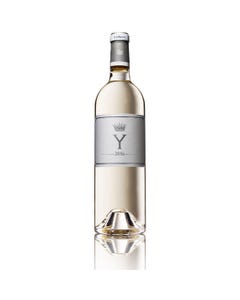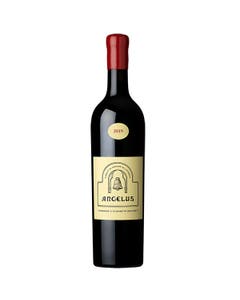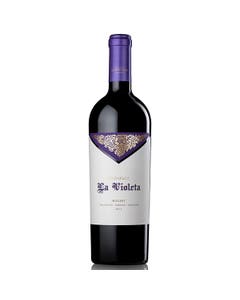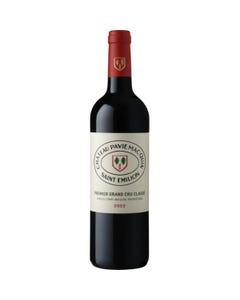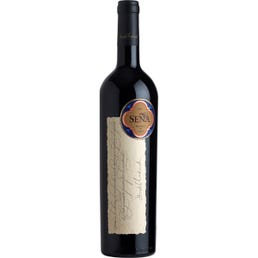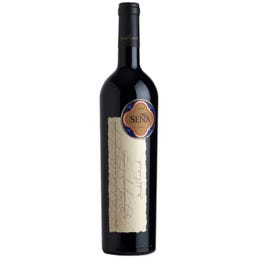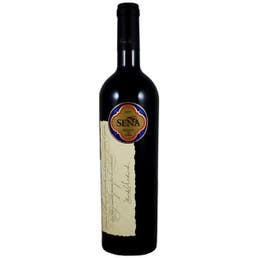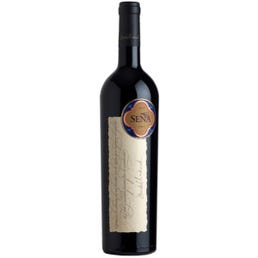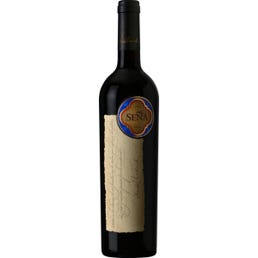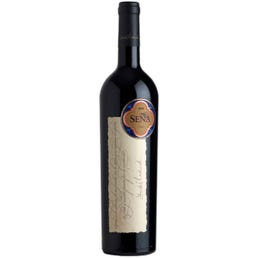Clos Apalta 2017
Other Vintages We Offer:
• Domaine: Clos Apalta
• Appellation: Valle de Apalta
• Origin: Colchagua Valley, Chile
• Blend: Carmenère 70%, Merlot 18%, Cabernet Sauvignon 8%, Petit Verdot 4%
Clos Apalta is a dream realized. This fantastic expression of terroir from Chile’s prestigious Colchagua Valley area is a world-class wine. The property belongs to the Marnier family, famously associated with Grand Marnier – the most exported liqueur from France. Alexandra Marnier was captivated by this breathtaking place at the base of the snow-capped Andes Mountains and saw its potential for crafting excellent, terroir-driven wine. There was quite a bit of work to be done, but Alexandra was fully committed to shaping the vineyards, parcel by parcel. The result today is a benchmark wine and a stunning state-of-the-art winery. Undoubtably, Clos Apalta is the perfect mixture of French know-how coupled with extraordinary Chillean terroir.
In 1994, Alexandra Marnier purchased the property, pioneering viticulture in this region. She brought with her French know-how coupled with many technological innovations to the estate. The property is sustainably farmed and heavily influenced by biodynamic viticulture. The somewhat Mediterranean climate at the estate hosts plantings of Cabernet Sauvignon, Merlot, Petit Verdot and Chile’s star varietal – Carménère. It sits in a 60-hectare amphitheater with a South-western exposure, which is perfect for cultivating the choicest vines. Some of areas planted in the vineyard are almost a century old, with original parcels from French rootstock dating back to 1920. The soil here is a mixture of granite, quartz, and clay, which create a natural water supply the vines are able to receive water from during drought-heavy years.
Construction for the gravity-flow winery was started in 1999 and completed in 2005. It is an architectural marvel. Though the initial winery appears to be nothing more than a series of stave-like structures jutting out from the earth, underground it is a completely different story. Clos Apalta hosts a stunning, modern and minimalist seven layer facility carved beneath granite rock, with the most advanced technology entirely dedicated to producing wine. The seven layer facility is the perfect mixture of both substance and beauty, as the wine starts at the first floor in the fermentation vats and makes its descent through the barrel room one floor below until it ultimately ends up on the bottom floor resting in bottle.
Alexandra Marnier had an eye for talent and made sure to bring on some of the top consultants in the world. Her choice would be none other than the legendary Michel Rolland. Clos Apalta is the only property in Chile that Michel Rolland works on, and he calls the Marnier family every day to discuss the progress of the vintage each year. It is very apparent that Clos Apalta is a special treasure to him, and he enjoys the challenge of navigating this unique terroir every year and producing some of the most exciting wines from the region. The 2005 vintage cemented Clos Apalta's legacy when it was crowned Wine Spectator's #1 Most Interesting Wine in 2008; a triumph for the estate.
The final blend is a beguiling mixture of Carménère, Cabernet Sauvignon, and Merlot. On occasional vintages, a pinch of Petit Verdot is thrown into the blend for some added flair. An elegant, seductive and poetic wine – Clos Apalta continues to be a tastemaker for Chillean Wines.
Tasting Notes
"The 2017 Clos Apalta is the 20th vintage of this wine that was produced with a blend of 48% Carmenere, 26% Cabernet Sauvignon, 25% Merlot and 1% Petit Verdot from organic and biodynamic certified vineyards on granite soils. It fermented with indigenous yeasts for four to five weeks, with manual punch-down of the cap, mostly in 7,500-liter French oak vats and 18% in new French barrique. Malolactic was in new French oak barrels, and the élevage lasted for 27 months in 85% new barrels and 15% second use. This is always a powerful, big and ripe wine that is regularly 15% alcohol, reflecting a warm and ripe place. The 2017 is no exception, perhaps a riper and more powerful wine than the 2016. It's still very young and marked by the élevage, with abundant balsamic aromas and notes from the wood—spice and smoke with an ashy touch. It seems quite marked by the character of the Carmenere. The tannins are quite round and polished, and the flavors are pungent and powerful. It's a full-bodied wine to age in in bottle and enjoy in its 10th birthday with powerful food. 90,000 bottles produced. It was bottled in September 2019." - Luis Gutiérrez, Robert Parker's Wine Advocate (8/31/2020, Issue 250), Ratings: 95, Drink: 2022-2030
"Gorgeous aromas of warm ganache and mocha lead to a rich, velvety palate loaded with currant, fig paste, black licorice, cassis brush and bramble notes. The long juicy finish has great grip and density, with echoes of graphite, dark fruit and mineral. Should greatly reward cellaring. Carménère, Cabernet Sauvignon, Merlot and Petit Verdot. Best from 2009 through 2019. 5,987 cases made." - James Molesworth, Wine Spectator, 2005 Vintage - Wine Spectators #1 Interesting Wine, 2008 Vintage Rating: 96
| Stock Status | Out of Stock |
|---|---|
| Appellation | Colchagua Valley |
| Vintage | 2017 |
| Brand | Clos Apalta |
| Shipping Weight | 3.000000 |




